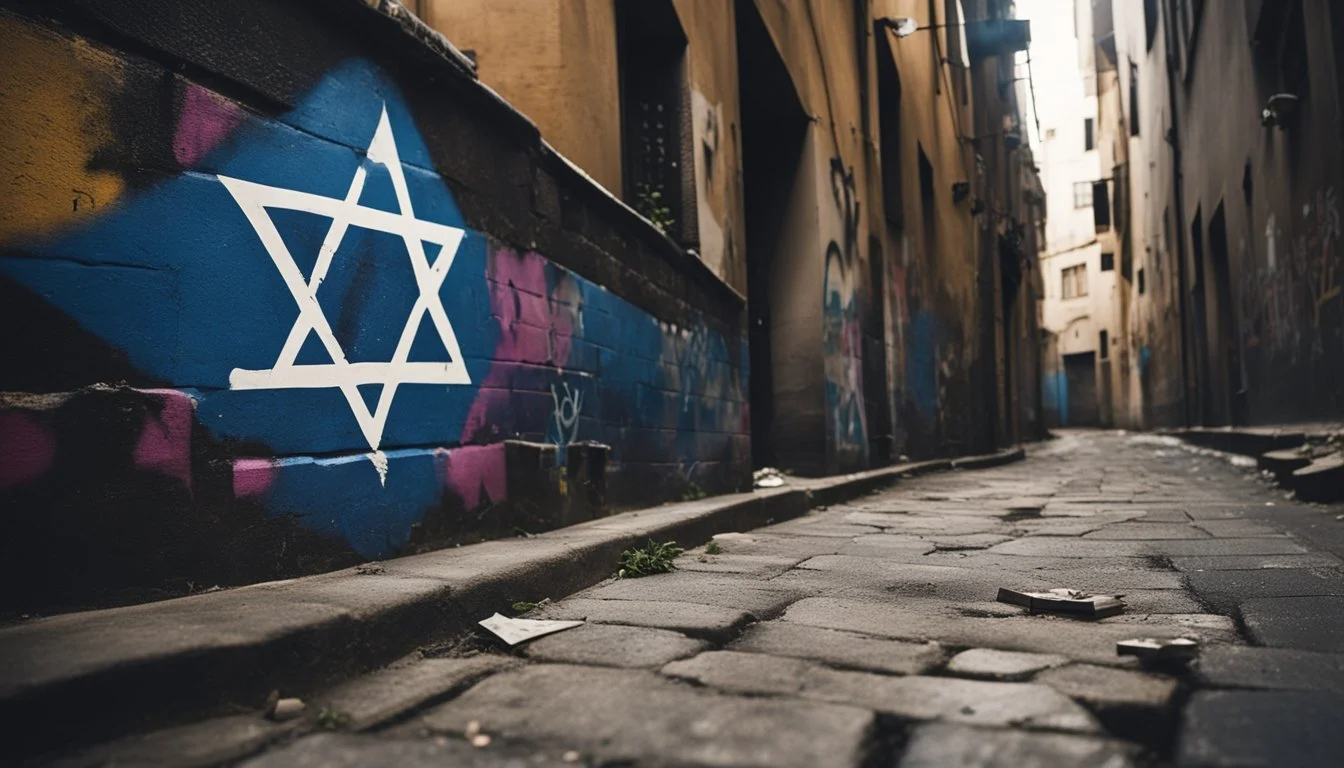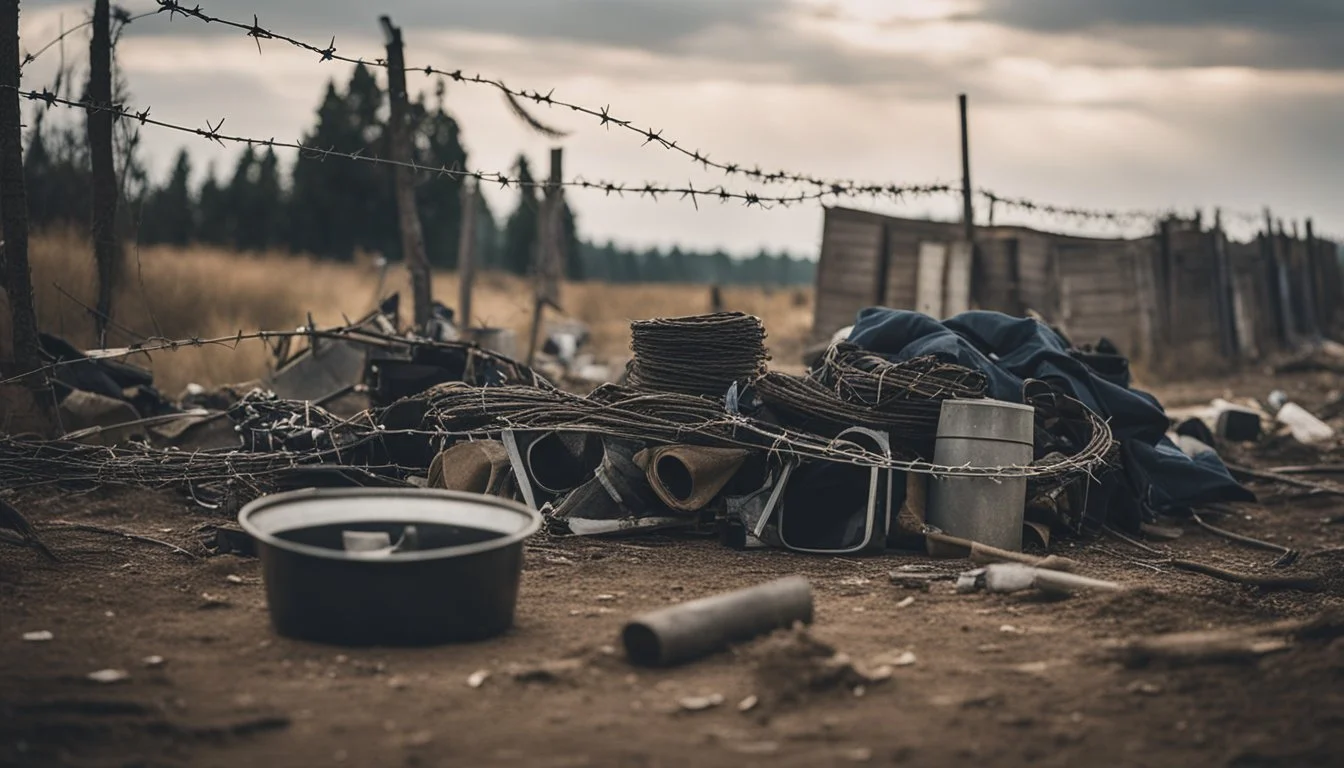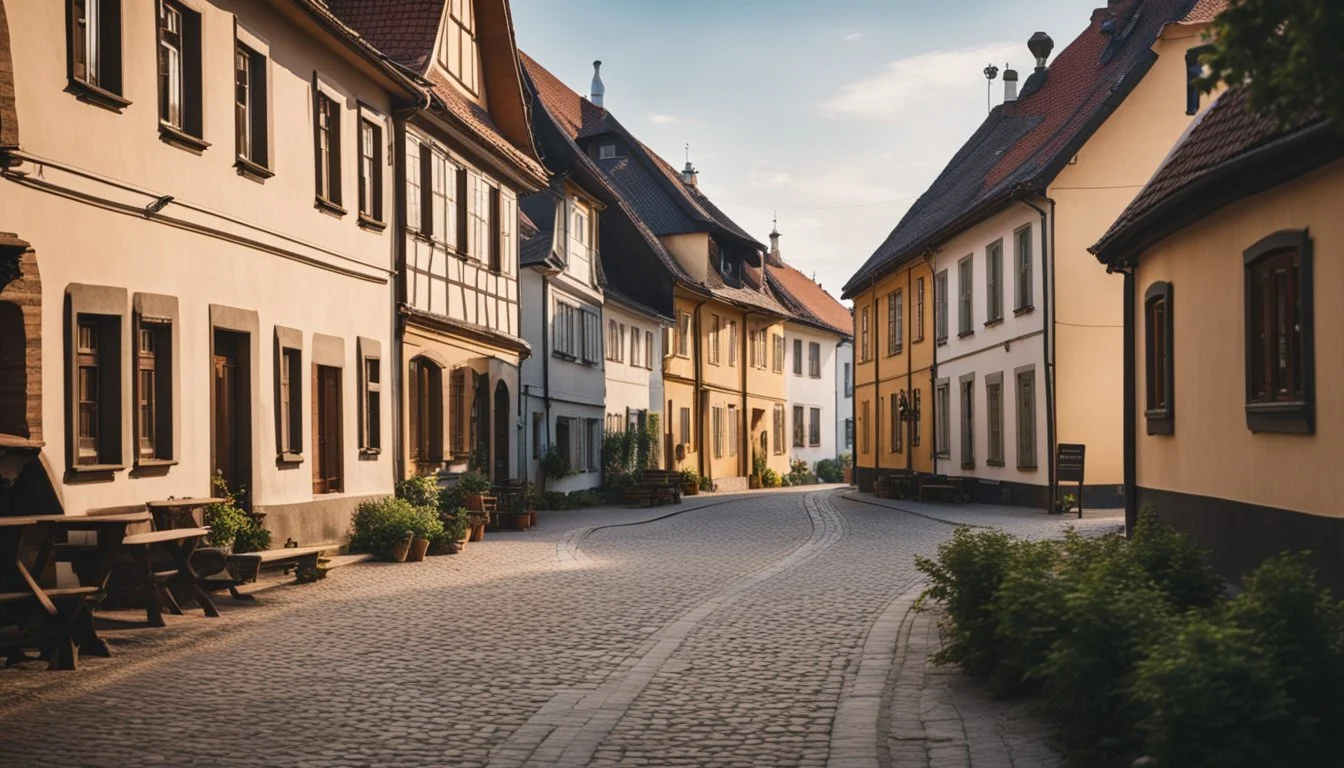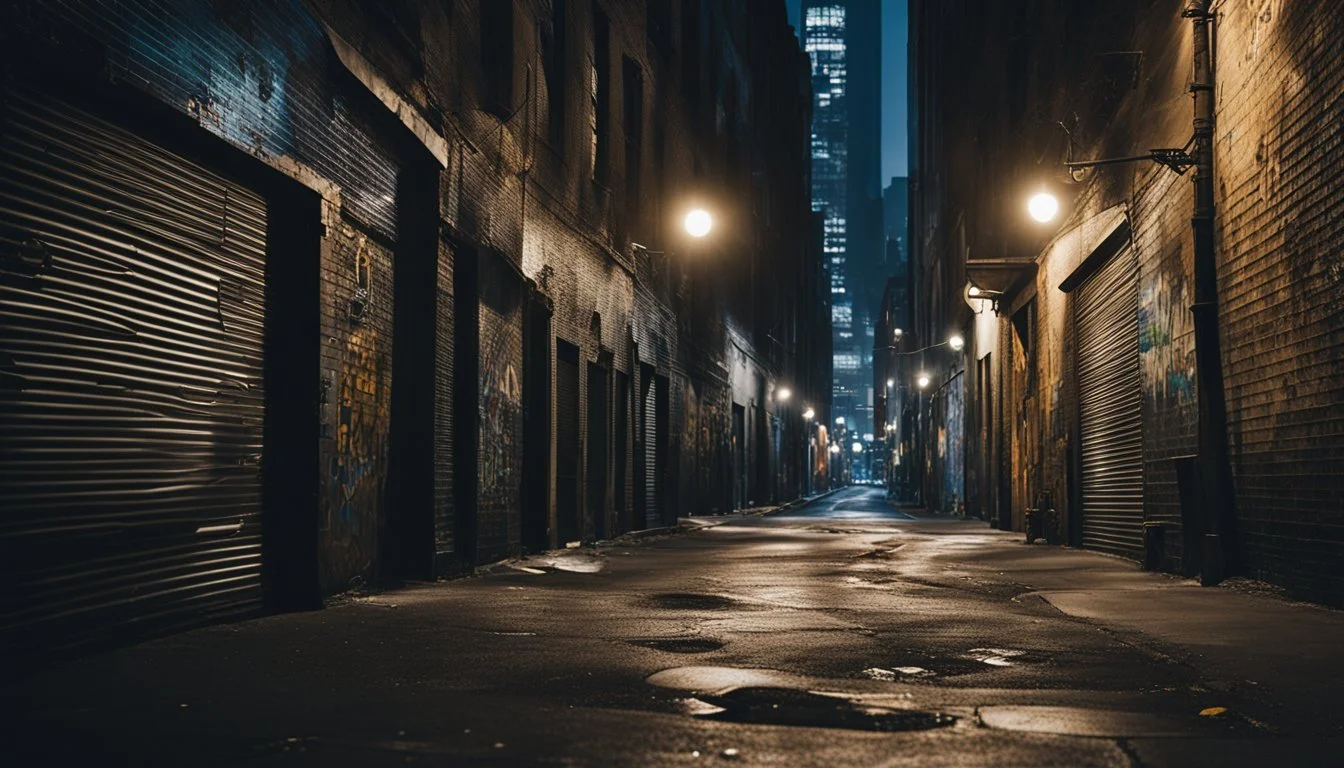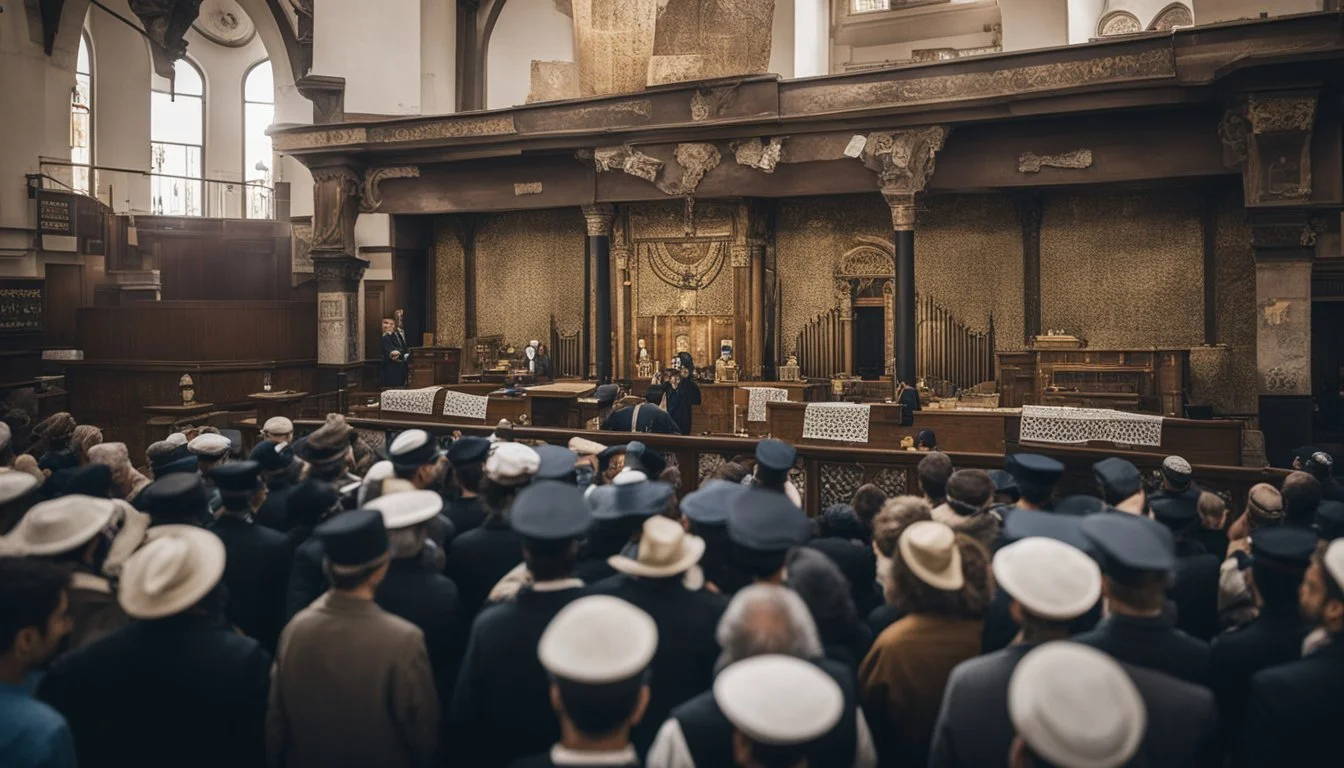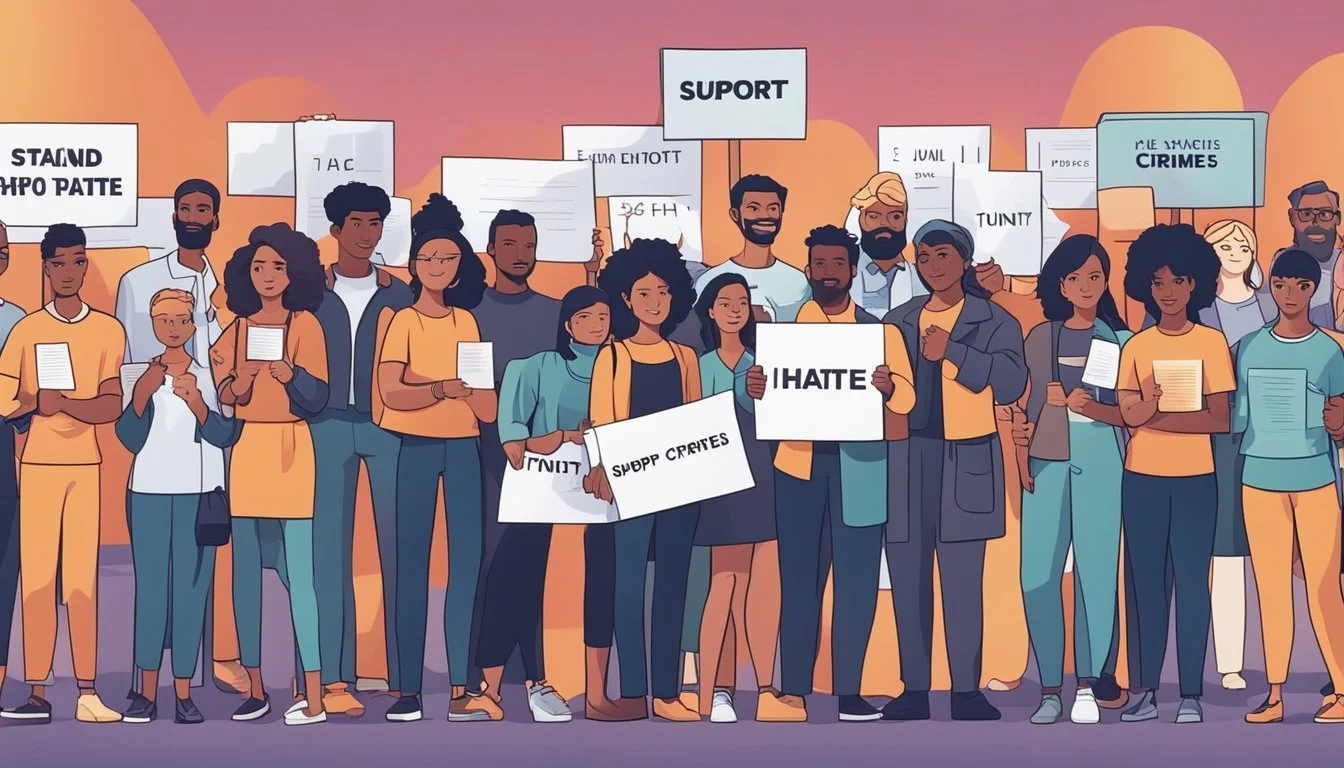6 True Crime Documentaries About Hate Crimes Against Jewish People
Must-Watch Investigations
The rise of antisemitic incidents has become a growing concern globally and is drawing attention to the prevalent issue of hate crimes against Jewish communities. As these incidents escalate in frequency and severity, they serve as a stark reminder of the enduring nature of this form of hatred. This article aims to highlight true crime documentaries that meticulously explore these disturbing patterns of violence and prejudice.
Documentaries play a crucial role in shedding light on the realities of antisemitic hate crimes, offering viewers a comprehensive understanding of both historical and contemporary incidents. By examining these six true crime documentaries, the article seeks to provide valuable insights into the personal and societal impacts of such acts, raising awareness and fostering a deeper comprehension of the challenges faced by Jewish communities today.
1) The Holocaust: A Warning from History
The Holocaust remains one of the most devastating events in human history, serving as an eternal reminder of the dangers of hatred and bigotry. During World War II, six million Jews were systematically exterminated by the Nazis in concentration camps across Europe.
One noteworthy documentary that addresses this dark chapter is "The Accountant of Auschwitz" (2018). This film follows the trial of Oskar Gröning, a former SS officer accused of being an accessory to the murder of 300,000 people. IMDb
Another significant piece is "Shoah" (1985). Directed by Claude Lanzmann, it is a profound nine-hour exploration of the Holocaust, featuring interviews with survivors, witnesses, and perpetrators. Wikipedia
"The Holocaust" (1978) miniseries also offers a deep insight into the atrocities, tracing the experiences of a fictional Jewish family in Nazi Germany. IMDb
"World at War: Genocide" (1974) is another essential documentary, part of the larger "World at War" series, focusing specifically on the Holocaust's harrowing details. Wikipedia
Lastly, "Night and Fog" (1956) by Alain Resnais starkly juxtaposes present-day footage of abandoned concentration camps with wartime footage, offering a chilling testament to the horrors endured. IMDb
These documentaries serve as critical educational tools, preserving the memory of the Holocaust and ensuring that such atrocities are never repeated.
2) Jews of the Polish Shtetl: Surviving Hitler
One significant entry is the documentary "Shtetl: The Life and Death of a Small Town and the World of Polish Jews" (1996). This film explores the life in the small Polish town of Bransk. Home to 2,500 Jewish residents before World War II, Bransk's Jewish community was decimated during the Holocaust.
The documentary offers a poignant look at the daily lives, culture, and ultimate tragedy faced by the Jewish residents. Using firsthand accounts and historical footage, it portrays the stark reality of survival and loss.
Another notable film is "Shtetl: A FRONTLINE Digital Premiere" (1996). This documentary also details the Jewish experience in Bransk, highlighting the painful memories and struggles of those who lived there.
The stories told in these documentaries emphasize the resilience and fortitude of the Jewish people despite the terrors of the Holocaust.
To learn more about "Shtetl: The Life and Death of a Small Town and the World of Polish Jews" (1996), visit IMDB.
For additional information on "Shtetl: A FRONTLINE Digital Premiere" (1996), check IMDB.
3) Chasing Shadows: Jewish Victims of Neo-Nazis
"Chasing Shadows: Jewish Victims of Neo-Nazis" (2022) is a gripping documentary that delves into the harrowing experiences of Jewish individuals targeted by neo-Nazi groups. The film provides an in-depth look at the chilling rise of these hate groups and how they systematically plot against Jewish communities.
Through eyewitness accounts and expert interviews, the documentary highlights the fear and resilience of Jewish victims.
Each story paints a vivid picture of the terror inflicted by neo-Nazis and the enduring strength of those who face this hatred daily.
The filmmakers use archival footage and contemporary reports to underscore the persistent threat posed by modern neo-Nazi organizations.
This documentary is a raw, unfiltered glimpse into the lives of those who live under the shadow of far-right extremism.
For more information, visit IMDb.
4) Deadly Hate: The Tree of Life Synagogue Shooting
This documentary examines the devastating attack on the Tree of Life synagogue in Pittsburgh.
On October 27, 2018, a gunman opened fire, killing 11 worshipers, marking the deadliest antisemitic act in U.S. history.
The film provides personal accounts from survivors and relatives of the victims, illustrating the profound impact on the community.
A focus is placed on both individual and collective experiences, addressing the resilience and ongoing fight against antisemitism.
IMDb: A Tree of Life: The Pittsburgh Synagogue Shooting (2022)
5) Unforgotten: Anti-Semitic Crimes in Modern America
"Unforgotten: Anti-Semitic Crimes in Modern America" (2024) delves into the alarming rise of anti-Semitic incidents in the United States. It examines various crimes, from harassment and vandalism to violent assaults, providing a comprehensive look into the impact on the Jewish community.
The documentary uses recent statistics, highlighting a 36% rise in anti-Semitic incidents in 2022, as reported by the Anti-Defamation League. This sharp increase underscores the urgency of addressing hate crimes and protecting vulnerable communities.
Interviews with survivors, experts, and law enforcement officials add depth to the narrative, offering personal insights and professional analyses. These perspectives help viewers understand the broader societal implications and the steps needed to combat anti-Semitism effectively.
For more information, visit IMDb.
6) Eternal Disgrace: The New York Assaults
"Eternal Disgrace: The New York Assaults" (2023) explores the alarming rise in hate crimes against Jewish individuals in New York City.
The documentary delves into specific cases, including the shocking beating and robbery of a Jewish man in Brooklyn during Hanukkah.
Combining interviews and police reports, the film presents a troubling picture of increased violence and the steps taken to combat it.
By presenting personal stories and expert analysis, "Eternal Disgrace: The New York Assaults" sheds light on the broader societal issues that fuel such crimes.
The documentary is a critical examination of the systemic failures and a call to action for stronger protective measures.
Eternal Disgrace: The New York Assaults (2023) on IMDb
Understanding Hate Crimes
Hate crimes represent a significant societal issue with deep historical roots and specific legal frameworks. This section explores their definition, legal boundaries, and historical context related to Jewish communities.
Definition and Legal Framework
Hate crimes are criminal acts driven by bias against race, religion, ethnicity, sexual orientation, or other protected characteristics. Federal legislation, such as the Hate Crimes Prevention Act, defines and criminalizes these offenses.
Key Aspects:
Motivation: The crime must be motivated by bias.
Types of Crimes: Varies from vandalism to assault and murder.
Legal Protections: Laws exist to penalize perpetrators and protect victims.
Different jurisdictions have their own regulations, but they generally follow the federal guidelines. Law enforcement agencies compile data on these crimes to track and address trends.
Historical Context
Jewish communities have long been targets of hate crimes. Incidents range from pogroms in Eastern Europe to modern-day antisemitism in the U.S. Historical events like the Holocaust marked significant periods of targeted violence against Jews.
Important Events:
1930s-1940s: Rise of Nazism and the Holocaust.
Post-9/11 Era: Surge in Islamophobic and antisemitic attacks.
These events underscore persistent antisemitism and the importance of societal and legal measures to combat it. Understanding history is crucial in addressing and preventing future hate crimes.
Impact of Hate Crimes on Jewish Communities
Hate crimes against Jewish communities carry profound emotional, psychological, social, and cultural ramifications. These impacts can linger for generations, influencing every facet of life for Jewish individuals and their communities.
Emotional and Psychological Effects
Hate crimes deeply affect the emotional and psychological well-being of Jewish individuals. Fear and anxiety become prevalent as community members feel targeted. This often leads to heightened stress levels, sleep disturbances, and even post-traumatic stress disorder (PTSD).
Increased vigilance and distrust towards non-Jewish communities can emerge, making daily activities seem fraught with danger. Victims and their families might struggle with feelings of isolation and alienation. These emotional scars can persist, hampering mental health and well-being.
Social and Cultural Repercussions
Socially, hate crimes can disrupt communal harmony and damage relationships between Jewish communities and others. Public events and religious gatherings might see reduced attendance due to safety concerns. Communal cohesion and the sense of belonging are compromised.
Educational and cultural programs, essential for preserving Jewish heritage, may also face challenges. Fear may deter community engagement, limiting opportunities for cultural expression and preservation. These repercussions extend to the broader societal fabric, fostering divisions and hindering multicultural dialogue.
In conclusion, hate crimes against Jewish communities pose significant emotional, psychological, and social challenges that can disrupt the affected communities for years to come.
Efforts to Combat Hate Crimes
Efforts to combat hate crimes involve coordinated initiatives by both governmental bodies and community organizations. These efforts include legislative actions, educational programs, and community outreach aimed at curbing antisemitic violence.
Governmental Initiatives
The Department of Justice (DOJ) has several initiatives to combat hate crimes. A virtual hate crime forum was hosted to raise awareness and provide resources to the public. The United Against Hate Program was launched nationwide, which aims to increase awareness and education about hate crimes.
The DOJ has also focused on youth engagement with a multi-prong initiative. This includes webinars and youth roundtable discussions designed to empower young people to prevent hate crimes and bullying. Special attention is given to addressing crimes targeted at Jewish, Arab, Muslim, and Palestinian communities.
Moreover, recent statements by the FBI Director highlight the alarming rise in antisemitic incidents. The FBI collaborates with local enforcement agencies to monitor and respond to these threats effectively. They emphasize the importance of reporting and prosecuting hate crimes to deter future incidents.
Community and Non-Profit Organizations
Many non-profit organizations and community groups work tirelessly to combat hate crimes. The Anti-Defamation League (ADL) is one of the key organizations. They provide educational resources, advocacy, and support for victims of hate crimes. Their programs focus on promoting tolerance and understanding through various community engagement efforts.
The Council on American-Islamic Relations (CAIR) also plays a crucial role by responding to hate crimes and offering support to affected communities. In a notable case, a Florida man was indicted for making threats against CAIR's Michigan chapter, demonstrating the active measures being taken against perpetrators.
Local civil rights organizations collaborate on initiatives that include workshops, public discussions, and online campaigns aimed at reducing hate crimes. These organizations often work closely with law enforcement to ensure swift action and justice for victims.

